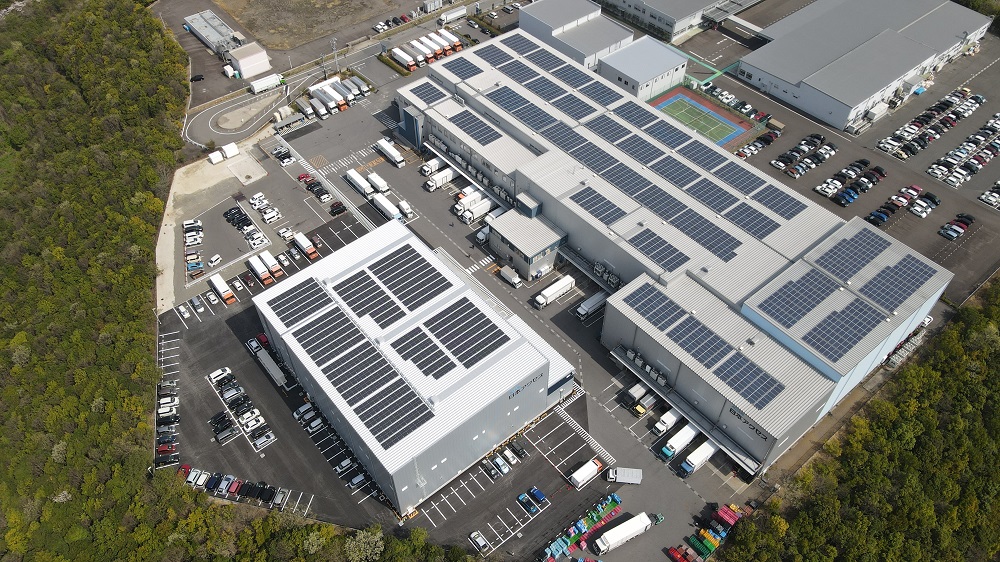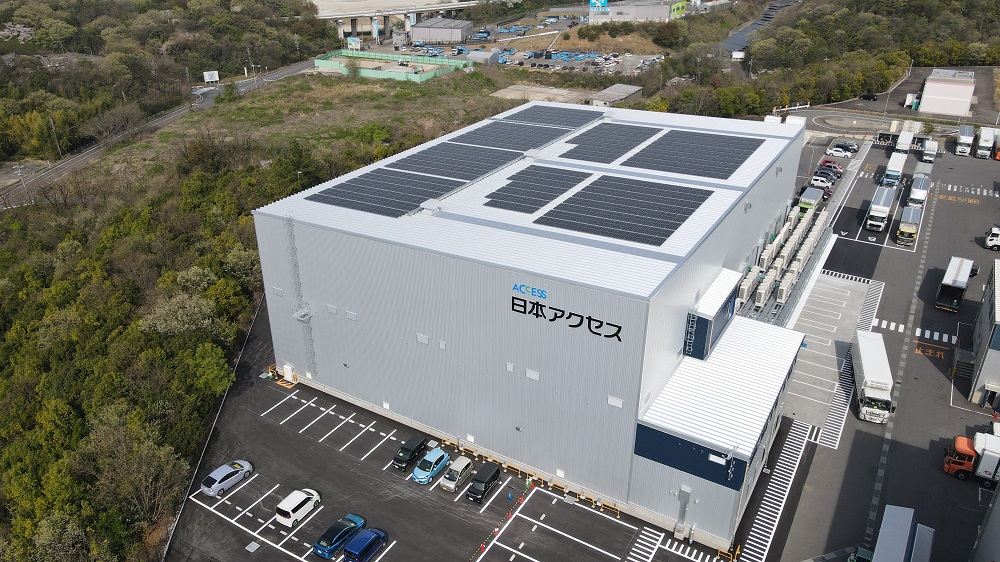ITOCHU Announces Construction of Surplus Solar Power Circulation Model
May 28, 2021
ITOCHU Corporation (headquartered in Minato-ku, Tokyo; Keita Ishii, President & COO; hereinafter “ITOCHU”) announced today that it would construct a surplus power circulation model and commence its service in collaboration with two ITOCHU Group companies, namely VPP Japan, Inc. (headquartered in Chiyoda-ku, Tokyo; Tomokazu Akita, President; hereinafter "VPP Japan") and i GRID SOLUTIONS, Inc. (headquartered in Chiyoda-ku, Tokyo; Tomokazu Akita, President; hereinafter "i GRID"). According to the model, the three firms will purchase surplus electric power generated from solar photovoltaic (PV) power generation systems installed at logistics, commercial and other facilities and supply it as CO2-free power to the facilities where such systems are installed and their surrounding areas. Together with Nippon Access, Inc. (headquartered in Shinagawa-ku, Tokyo; Junichi Sasaki, President; hereinafter "Nippon Access"), a large food wholesaler and another member of the ITOCHU Group, actions for the model are already underway. The ITOCHU Group will thus work as one to push ahead with carbon-free solutions for logistics and other facilities.
Surplus solar power circulation model to help spread renewable energy
Conventional self-consumed solar PV power generation systems have been mainly introduced to refrigeration and freezing centers, given that these centers consume a great deal of electric power and that they can consume all the solar power generated within these centers. At constant or ambient temperature warehouses with limited power consumption, it was difficult to install such systems because surplus power would occur. For resolving this issue, the ITOCHU Group has built a surplus power circulation system under which i GRID will purchase surplus power generated at facilities and supply it as CO2-free power to these facilities and surrounding areas.
That will increase benefits of installing solar PV power generation systems at different facilities and help spread renewable energy across the country.
In May 2021, the service is commenced for logistics facilities and commercial facilities.
|
|
Making power at logistics centers green to accelerate carbon-free shift
Demand for home delivery services is rising in the new lifestyle under the pandemic. It means that logistics centers are of greater importance as social infrastructure than ever before. In addition, actions towards departure from carbon are awaited. ITOCHU and Nippon Access will use self-consumed solar PV power generation systems to cover part of the power consumption at facilities in an attempt to accelerate their carbon-free shift. This past March, logistics facilities in Kasugai and the constant-temperature and freezing center in Sano, operating exclusively for FamilyMart, introduced self-consumed solar PV power generation systems and put them into operation. The surplus solar power circulation model will open the way for introduction of solar PV power generation to constant-temperature and ambient-temperature warehouses and will considerably increase facilities at which relevant systems may be installed in the future. Taking advantage of this mechanism, ITOCHU and Nippon Access will successively introduce those of the nearly 330 facilities in Japan operated by Nippon Access to which solar PV systems can be installed.
ITOCHU has so far worked to construct a next-generation electric power platform with a focus on households as final consumers by means of the Smart Star series of independently branded power storage systems for households. In the future, it will take a market-oriented approach and work with VPP Japan and i GRID to engage in power management featuring combination of distributed power sources including self-consumed solar PV systems to be introduced to communities with digital technologies with a focus on supply chains including supermarkets and other retail distributors close to end users and logistics facilities. It will thus strive to maximize renewable energy in individual areas in accordance with the sustainable development goals (SDGs).
Aerial photos of Nippon Access' logistics facilities in Kasugai
|
|
|



